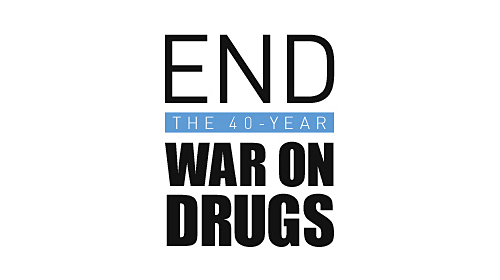
June 2011 marks the 40th anniversary of President Richard Nixon's declaration of a "war on drugs" — a war that has cost roughly a trillion dollars, has produced little to no effect on the supply of or demand for drugs in the United States, and has contributed to making America the world's largest incarcerator. Throughout the month, check back daily for posts about the drug war, its victims and what needs to be done to restore fairness and create effective policy.
Last year, Congress took an important step toward creating a more just criminal justice system by passing the Fair Sentencing Act (FSA), which reduced racial disparities caused by draconian crack cocaine sentencing laws. Tomorrow, the Sentencing Commission will decide whether to apply the new FSA guidelines retroactively to individuals sentenced under the old, extreme law.
You can help convince them to do what's right. To send a letter to the U.S. Sentencing Commission urging them to apply the newer, fairer guidelines retroactively, click here.
By applying the new guidelines retroactively, the Sentencing Commission can provide over 12,000 people — predominantly individuals of color — with the opportunity for justice.
Both Democrats and Republicans have already acknowledged that the hastily passed 1986 law creating a 100-to-1 disparity between crack and powder cocaine sentence was a misguided decision backed by unreliable scientific support. Even the Department of Justice has recognized that retroactively applying the newer sentencing guidelines will help remedy this 25-year-old injustice.
The issue of retroactivity is a matter of basic fairness. In April 2009, while testifying before the Senate Judiciary Committee about the crack cocaine law, Assistant Attorney General Lanny Breuer said, "Our laws and their enforcement must not only be fair, but they must also be perceived as fair. The perception of unfairness undermines governmental authority in the criminal justice process." Our nation's justice system suffers when it creates a perception of unfairness, and perhaps no federal policy over the past 25 years has done more to undermine respect for the criminal justice system than the crack-powder disparity. If the individuals who were harshly punished under the old crack cocaine law are not provided an opportunity for relief, an unmistakable inequality in the system will persist.
On Thursday, the Sentencing Commission can follow Congress' lead and help address this unfairness by voting in favor of retroactivity. The ball is in the Commission's court, because only it can make the guidelines retroactive. So, we urge them to choose fairness over demagoguery and overheated rhetoric.
Take action: send a letter to the U.S. Sentencing Commission urging them to apply the newer, fairer laws retroactively.
Learn more about the war on drugs: Sign up for breaking news alerts, follow us on Twitter, and like us on Facebook.

